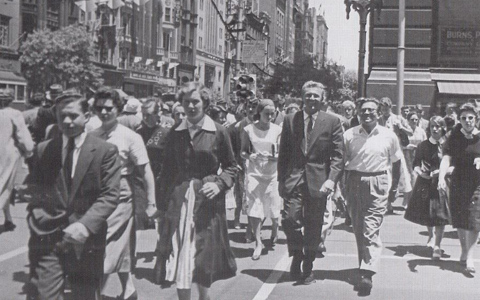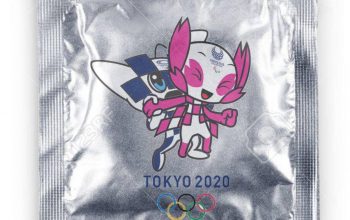With a large number of espionage agents operating in Melbourne, organisers of subsequent Olympic Games were keen to discourage spy agencies interfering by encouraging athletes to defect.
The next Olympic Games were held in Rome. Two weeks before the opening ceremony, Italian officials urged Washington to keep the Olympics “free from activity of a political or propaganda nature.” Their warning to the USSR was more blunt. “No propaganda or we throw you out!” Both superpowers agreed to play nice.
The US had no intention of keeping its word, and two weeks before the Games commenced, a CIA agent approached David Sime, the sprinter, asking him whether he would be willing to approach certain Soviet athletes, who the CIA believed might defect. Sime agreed to cooperate. His targeted was Igor Ter-Ovanesyan, who would go on to win a bronze medal in the long jump. He admired Jesse Owens, and at various meets in mixed easily with US athletes, to whom he confided he listened to Voice of America broadcasts and enjoyed jazz, which was forbidden in the Soviet Union. When he arrived in Rome, Sime invited Ter-Ovanesyan out for dinner. He had little success in encouraging the Russian to defect. As Ter-Ovanesyan explained, he had his own apartment and car in Kiev, and he expected generous rewards should he do well in Rome. Sime convinced the Russian to attend a second dinner, and this time CIA agent was present. Lacking subtlety, the CIA man frightened Ter-Ovanesyan, who firmly rejected the offer to defect.
Other American athletes were asked to hand out copies of the Declaration of Independence and a 33-page booklet on the virtues of American life – all printed in Russian. To provide the government with some level of deniability, the printed material was authorised by the Freedom Fund Inc., a CIA front.
Another CIA front was Radio Free Europe, and its journalists, many of whom had escaped from behind the Iron Curtain, were active in Rome in approaching athletes. Hungarian athletes, for example were offered coaching positions in the US and in Western European countries. One of the athletes approached was East German distance runner Hans Grodotzki. He was given a letter urging him to defect, which the official Communist Party newspaper Neues Deutschland claimed was produced by “the West German revanchist lobby groups.”
As for the KGB, they did not even bother to try and obtain defections of athletes from western countries. Instead, their role, like it had been in Melbourne, was to prevent defections from their team. Unlike Melbourne, the KGB and other secret services from Iron Curtain countries succeeded in preventing defections.
This does not mean that the Communists were purely defensive in Rome. The Olympic Games provided them an avenue for winning hearts and minds. According to a confidential report that went to President Eisenhower: “The Communists are now putting more emphasis on propaganda through deeds than through words.” Having beaten the US on the medals table in Melbourne, the USSR was determined to do the same in Rome, and did so, winning a total of 103 medals to America’s 71



